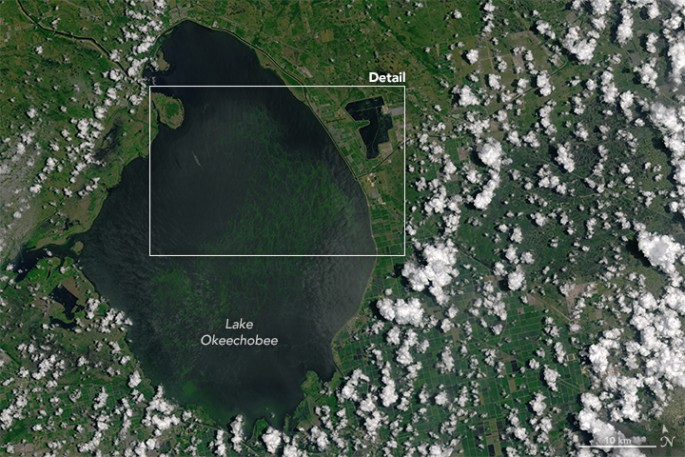Florida's southern rivers and beaches are now teeming with toxic, foul smells from a massive algae bloom, where Governor Rick Scott is now urging legislators to spend millions of dollars to combat this invasive overgrowth.
On Wednesday, Scott announced that he will request for the Legislature to create a local state grant program to help homeowners to switch from septic tanks to centralized sewer systems where he also sent a proposal that this funding will be used come 2017 so that communities on the Indian River Lagoon and the Caloosahatchee River can develop and build new waste water management systems.
This bloom is partially caused by septic waste from Lake Okeechobee discharges including septic tank runoff seeping into the state's waterways. Among those that are plagued by the stench is a regional stretch of beaches known as Treasure Coast, as algae blooms are described by locals as thick as guacamole.
In Florida, Lake Okeechobee is the largest freshwater body across the state however, it is extremely polluted with runoff that originates from human waste and animal feed and fertilizer which are all conducive for algae blooms. Now, the U.S. Army Corps of Engineers are now managing this flooding, in order to release water from the lake into nearby rivers and lagoons.
According to Florida Atlantic University's Bill Louda, there is too much nitrogen and phosphorous being dumped into the state's natural waters and of course, there will be a reaction. According to Senator Marco Rubio on Friday that this situation is already reaching catastrophic water conditions, as he called for an emergency declaration from Washington.
Rubio says that allowing emergency funds can assist businesses that are devastated by these algae blooms, and hopefully, healthcare agencies can take immediate action to investigate the long term impact of this filth that can spread deadly bacteria to communities in Florida.
However, Louda says that this will not be eradicated immediately due to a potentially disastrous domino effect on the ecosystem. If algae dies they are also killing sea grass, where good macro algae and phytoplankton could also die, which feeds the fish and everything else.
Since this algae movement is very rapid, this can shift into winds and the tides which makes it challenging to predict where this algae bloom will appear next, taking weeks for this to completely disappear and wash away.



























